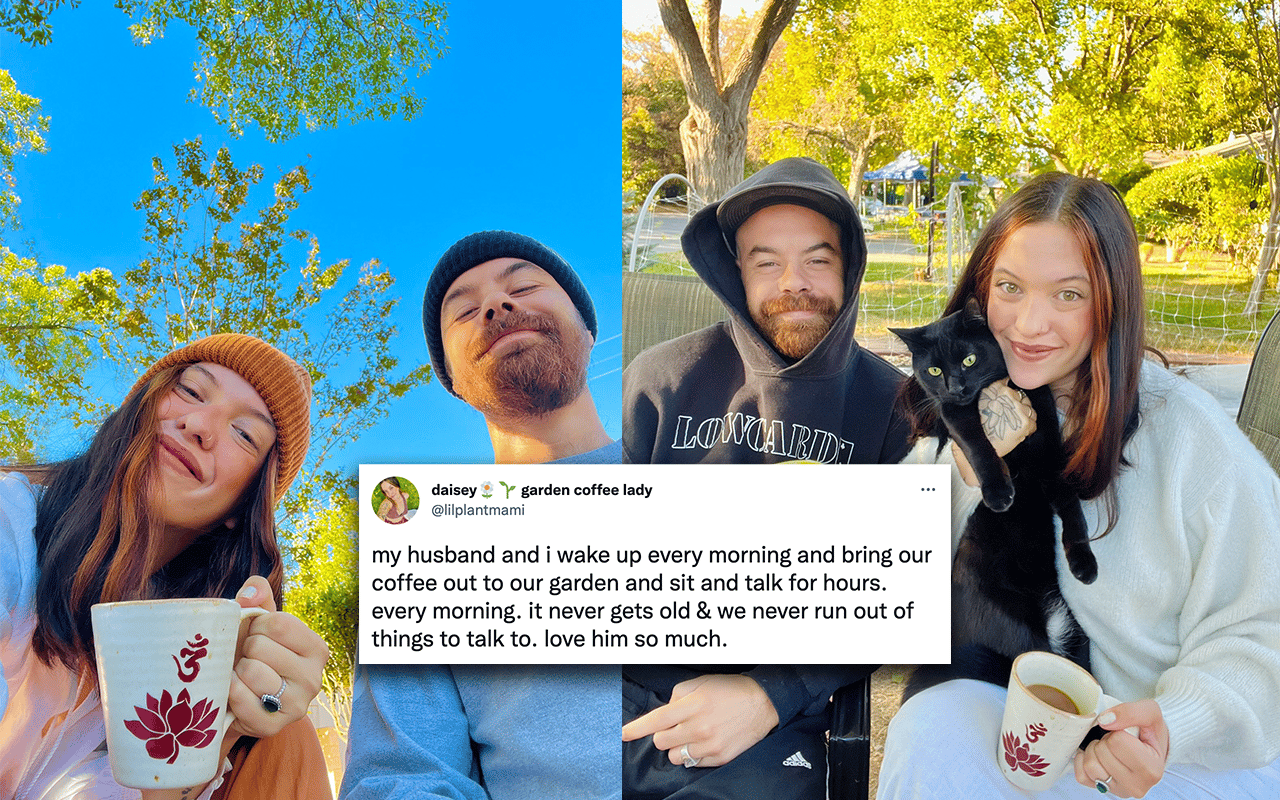
It’s not often that the internet lashes out at someone for posting completely inoffensive content. But when they do, it’s usually on Twitter.
Earlier this week, Twitter user @lilplantmami — real name Daisey — went viral for posting a tweet about her wholesome morning routine with her husband.
“my husband and i wake up every morning and bring our coffee out to our garden and sit and talk for hours. every morning. it never gets old & we never run out of things to talk to. love him so much.” she wrote.
The post quickly went viral, racking up thousands of replies and quote tweets tearing Daisey apart for various aspects of her tweet that could be considered “privileged”.
Many took issue with the couple’s flexible morning schedule — Daisey is a regenerative gardener and her husband is a yoga instructor and professional skateboarder— saying she should have prefaced their privileged work situations in the tweet as not everyone has ample time in the morning to enjoy coffee with their spouse.
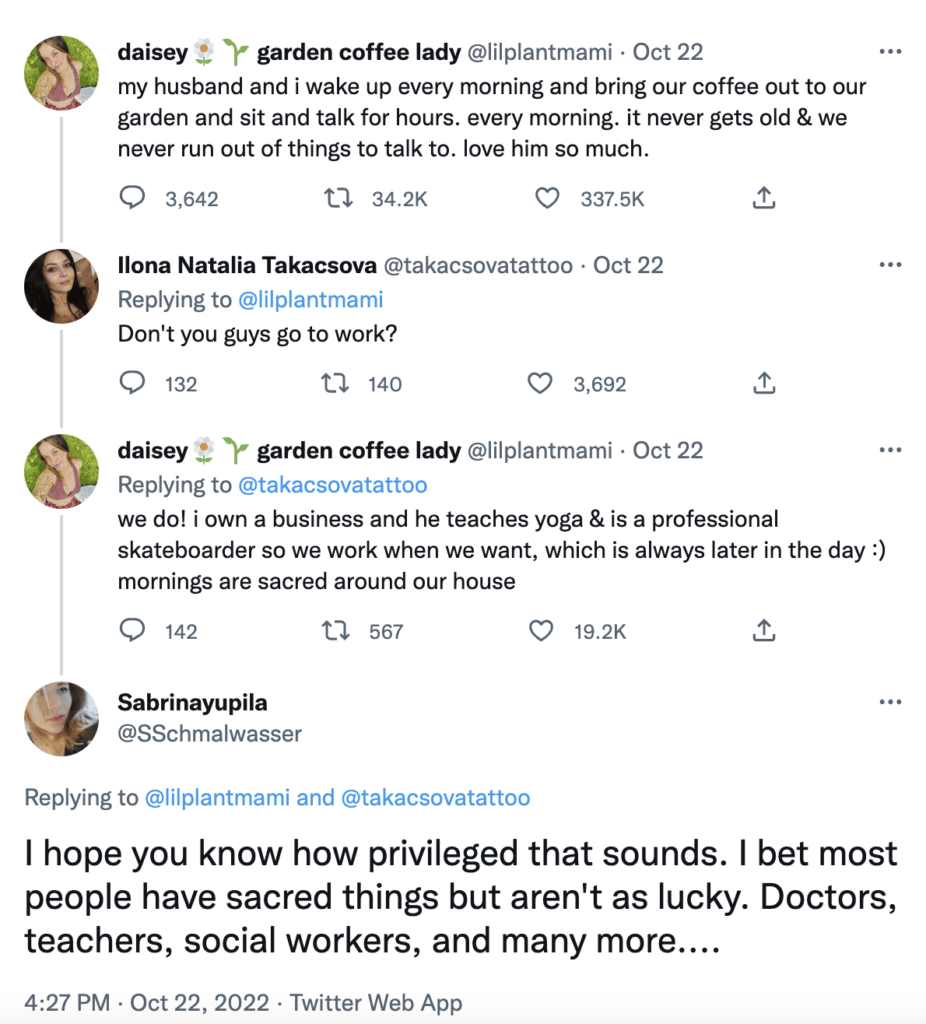
Others criticised Daisey for “humble bragging” about being rich enough to have a garden and lucky enough to have a husband that is home with her, while several people shared their own morning schedules dealing with children, chronic pain, or early morning shifts. People told Daisey it sounds like marriage won’t last and one user even went as far as to say that “a lot of people didn’t wake up this morning at all”, so she should be more mindful of what she posts.
The replies to Daisey’s tweet descended into labeling her as “tone deaf,” “toxic” and “ableist” for neglecting to acknowledge the privilege of her morning coffee routine with her husband.
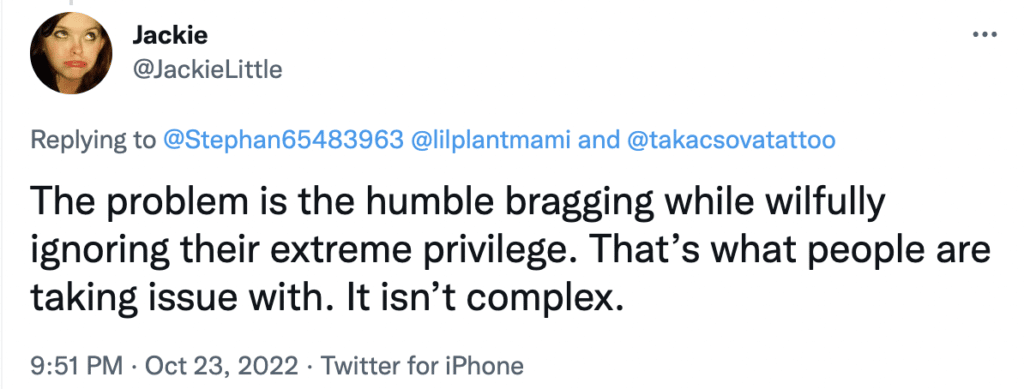
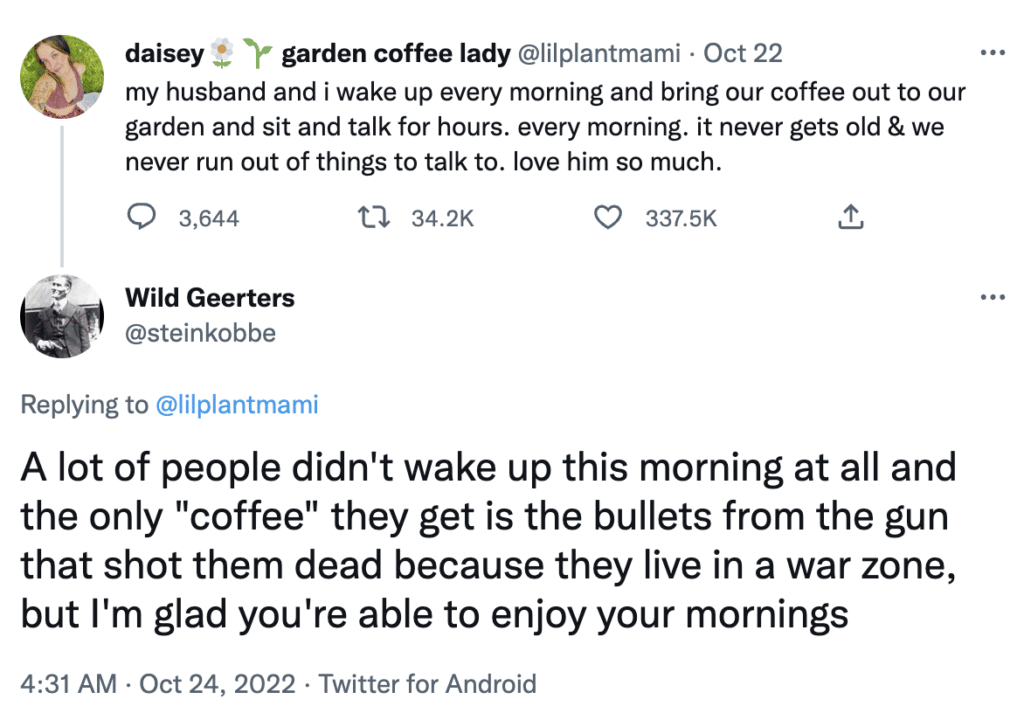

Though Daisey has taken the criticism in stride by responding to questions about her lifestyle and refusing to delete the tweet (for now, at least), this controversy is indicative of a larger shift in online communication— one that is specifically manifesting among social media’s biggest users.
Platforms like Twitter and TikTok have evolved into deeply negative spaces, where users have created a set of unwritten rules for communicating with each other.
Users are expected to pre-emptively defend every statement they post so those on the receiving end know they bare no malice.
If someone fails to abide by this etiquette, it gives users free rein to impose their own (usually negative) assumptions about the person, which can lead to outrageous whataboutisms and trauma dumping in their comment section— all of which we saw in the case of Daisey’s tweet.
To avoid this all-too-common scenario, many chronically online people tend to over-explain themselves and preface any statement that could be negatively construed with an apology before they’ve even offended anyone.
Benedict Townsend, the host of YouTube News, explains this shift in communication, calling it a “very specific phenomenon that’s very online”.
“People will not only not give you the benefit of the doubt, [but] they will actively assume that everything you say is meant to be offensive and is meant to offend them specifically,” he said in a TikTok video about Daisey’s tweet. “It’s created this fascinating way of communicating that we all have now, where we’re having to constantly defend ourselves while we’re speaking in case someone chooses to take it in bad faith.”
@benedicttown Why do we all talk like this
♬ original sound – Benedict Townsend
As an example of this, the creator shared a tweet by @stopitg who modified Daisey’s tweet to suit this communication style.
“my wife (shes a good person) and i wake up every morning ( grateful) and bring our coffee(its fair trade) out to our garden(our parents helped us with the down payment) and sit and talk for hours (before we start work). it never gets old (i realize this may change). i love her,” they wrote.
my wife (shes a good person) and i wake up every morning ( grateful) and bring our coffee(its fair trade) out to our garden(our parents helped us with the down payment) and sit and talk for hours (before we start work). it never gets old (i realize this may change). i love her
— g (@stopitg) October 23, 2022
Though this style of communication has existed in online spaces for years, users were expected to adopt it as the status quo in the aftermath of 2020, with political, social, and economic tensions at an all-time high around the world.
Many turned to social media as an outlet for their stress— policing the behaviour of others in an effort to feel a semblance of control that was lost over the past two years.
As a result, ‘cancel culture’ evolved from holding powerful figures accountable for genuine crimes to attempting to run someone off Twitter for posting something positive that others might not be able to relate to.
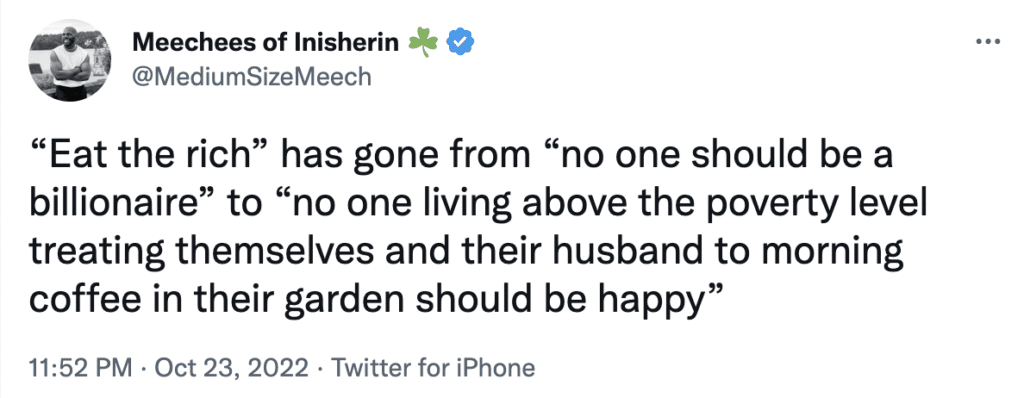
While in principle, it’s positive that users are expected to be more transparent about their privilege when posting about success online, the manifestation of this communication style has turned some of our favourite entertainment platforms into spaces filled with competition and resentment.
With little opportunity for nuanced discussion and a lack of empathy for those who post outside the unwritten rules, the way we communicate with each other on social media must undeniably change, or it could soon be the demise of so many platforms we’ve grown to love.

